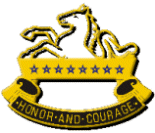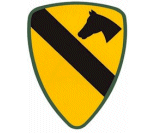DATELINE: 30JUL07 PATROL BASE PALIWODA
A Country to Fight For
An old saw has it that the best proof of a man's loyalties lies in the sports teams he roots for. If so, Iraq's fairytale 1-0 victory yesterday over Saudi Arabia in soccer's Asia Cup--and the euphoria it inspired from Basra to Baghdad to Kirkuk--is a timely reminder that Iraq is not just a notional country.
"Once again, our national team has shown that there is only one, united Iraq," Sabah Shaiyal, a Baghdad policeman, told the Associated Press. "You can see the national feeling," added one Abu Baqir of Sadr City to a reporter from the New York Times. "It has always been there, and we hope this winning will be the beginning of the end of sectarianism."
It is easy to get carried away by the symbolism of a single soccer victory. Still, it was remarkable that the winning team -- known as the "Lions of the Two Rivers"--was Iraqi in the broadest sense of the word. Younis Mahmoud, the team captain who scored the winning goal, is Turkman. Teammate Hawar Mulla Mohammed, who put the ball into position, is Kurdish. Goalkeeper Noor Sabri is Shiite Arab.
No less remarkable were the circumstances in which the team had to train and compete. Coach Jorvan Vieira of Brazil had to move the Iraqi players beyond their political differences. The team, which could not train on home turf, went from match to match in economy seats. (Their Saudi rivals travelled more comfortably.) The celebration of their previous victory, over South Korea, was cut short by a suicide bombing that killed 50.
Yet for everything they lacked, the Iraqis had a powerful if intangible asset over their more pampered rivals: a country to fight for. Perhaps their victory will give all Iraqis a taste of what they may yet achieve together.
fromThe Wall Street Journal, 30 July 2007, p. A12
Yesterday was an unusual and interesting day that in many ways summarizes the kind of character our soldiers have.
For the Religious Support Team, or RST—-consisting of yours truly and the loyal and capable chaplain assistant CPL C, we began this Sunday with our worship service. Afterwards, we spoke of how thankful we were that things had been relatively quiet in our particular sector. When I use the word quiet, I do not mean absence of war, violence, or danger, but just not as much. Our commander, Warhorse 6, put it best—-the Iraqis in our area of operation (AO) had begun to be more worried about the price of government-provided gas than they were about getting killed.
Around lunchtime, a huge explosion shattered the oppressively hot but quiet afternoon. One of our battalion surgeons, Doc B, said he saw a Mount Saint Helens-like mushroom cloud rising in the sky on the horizon. The insurgents had hit one of the Iraqi-manned checkpoints with a vehicle-borne, improvised explosive device (VBIED). After our command sergeant major, Warhorse 9, notified us, we rushed over to the aid station and awaited the incoming casualties.
One of the first things I ask is whether any of our soldiers were hurt. Fortunately none were, but we still had human beings coming into the aid station in various stages of trauma.
And speaking of trauma, one of our docs told me that, in his conversations with the doctors down at the combat surgical hospital (CaSH) at Anaconda, they admitted that even rotations at inner-city trauma centers had not prepared them for the types of injuries they've seen soldiers sustain in war.
I wish I could say I enter the aid station courageously and without fear when I know that there is a high probability that something horrific awaits on the other side of the door. My stomach still turns and I have to pray just to cross the threshold. CPL C, as the son of a nurse (and much braver man than I), seems to have an easier time dealing with the sights, sounds, and smells of the aid station.
Our two surgeons and several of our medics were huddled around the litter of an 11- year-old girl who happened to be in the wrong place at the wrong time. As the terrorists were launching their attacks, they also sent in mortar rounds to the local city of Balad. The insurgents tend to be foreign nationals or former, disgruntled members of the military. Of the foreign nationals, the vast majority of them come from Saudi Arabia, whose main exports seem to be oil and hate.
The girl and her father were working in a field when the mortars landed. A recent news item tells the story of an American soldier writing a column under an alias for a newspaper back in the States. The column has been controversial due to his claims of atrocities committed by his fellow soldiers against local Iraqis. Contrast those farcical tales with the scene of seven soldiers working feverishly to save this girl. CPL C and I stood in the background, with our medical gloves on, looking for any way we could help.
The girl died despite all the treatment. Our soldiers covered her up, prepared her body with dignity, and the RST went outside to tell her two uncles who waited for news. Communicating through a translator, we assured the men that our docs had done all that they could. They were appreciative, but their faces wore the hue of resignation that comes from having to pick up dead loved ones too many times. We helped carry the body to the waiting truck, and back we went to the aid station.
Our medical personnel continued to attend to the incoming Iraqi police and soldiers, and we were able to medically evacuate (MEDEVAC-usually by Blackhawk helicopter) the serious injuries to the CaSH.
When things quieted down, we began to walk back to the chapel and our offices (I call it the chapel complex to make it sound important). I spoke with some soldiers who were milling about, but out of the corner of my eye I saw one of our interpreters, Tupac, weeping. You might wonder about the names. Out of concerns for their safety, we give our interpreters nicknames, usually the names of rappers or historical mafia figures. I went up to him, and Tupac told me he had lost his neighbor and school-boy friend in the blast. His tears reminded me that despite what we hear or what we have come to think, there are still many brave Iraqis trying to make their country work. The soldiers who died or were wounded are young men who courageously stood out on the line, in the heat, attempting to make their country safe.
Later that evening, we conducted evening worship services. Celebratory gunfire greeted us as we left the chapel. I knew that the Iraqi national soccer team must have defeated the Saudis in the finals of the Asia Cup. Since the terminal velocity of a descending bullet is the same as when it leaves the muzzle, I encouraged everyone to stay under thick ceilings for awhile. I was and am happy for the Iraqis.
At the end of the day I had the following thoughts that I thought the people at home might want to know.
- Our soldiers, despite long deployments and changing strategies, continue to be some of the most professional and compassionate people (my italics) I have ever known.
- Having a morally upstanding chain of command makes all the difference in the world.
- Leadership is everything at all levels.
- The Iraqi people are incredibly resilient. They can be very frustrating, but this is mostly due to cultural differences than it is to ethical deficiencies. At the ground level there are many courageous men and women who refuse to be terrorized by homicidal killers, aka terrorists, Al Qaeda, etc.
- Aside from the Divine, soccer is the most important democratic force in the universe.
- Our AO is still safe and making progress. Everything did not unravel despite the terrorists best efforts.
- It is a sad commentary that humanity allows a girl to die just because she was born into the “wrong-believing” family.
- It is a hopeful commentary on humanity that so many people, Iraqi and American, worked to save her life and many others in response to the attacks by cowards.
Please continue to keep us in your prayers. Our soldiers are great men and women, and I still get choked up when I see the things they do. Take care.
Gratia et Veritas,
Warhorse Archangel
SUPPORT SPOTLIGHT
FIRST BAPTIST CHURCH, WOODBRIDGE, VASnacks, clothes, toiletries, books, and Bible studies have all emerged from the boxes sent by this faithful congregation. By keeping us in their prayers, sending us the items that improve our living conditions, and giving us spiritually edifying things to read, this church has made our "adventure vacation" a little more bearable. Thank you.
CHAPLAIN'S BOOKSHELFHome Fires Burning: Married to the Military—for Better or Worse
by Karen Houppert 
Ms. Houppert, growing up the daughter of a career Air Force pilot, losing him in a training accident when she was just 11 years old, has a great deal of personal experience with the military. In her book she follows several Army wives from Ft. Drum as they cope with their husbands’ deployments as part of the 10th Mountain Division. While not always flattering, I believe her book is nonetheless very truthful. It provides an especially valuable insight into the challenges of the wives of lower enlisted soldiers.
Under the Sabers: The Unwritten Code of Army Wives
by Tanya Biank 

A daughter of a career Army Colonel, a wife of an Army officer, and a reporter for the local Fayetteville, NC (Fort Bragg) paper, Ms Biank chronicles the lives of several Ft. Bragg wives, highlighting the circumstances surrounding the four homicides that took place in 2003-2004 after soldiers returned from deployments to Afghanistan and Iraq. Her book stems from the nationally recognized articles she published as a military correspondent for Ft. Bragg. Her work is also the source for the new Lifetime Channel series
Army Wives. A very honest description of the highs and lows that Army wives experience.
The Road
by Cormac McCarthy 
In his fictional account of life in post-apocalyptic America, Mr. McCarthy accurately describes the powerful feelings a loving father has for his son as they travel “the road” to safety on the coast. Using a quasi-Odyssey like journey, his novel also tells of the painful fears fathers have for their sons as they live in a world that causes them to grow up much too soon.

































